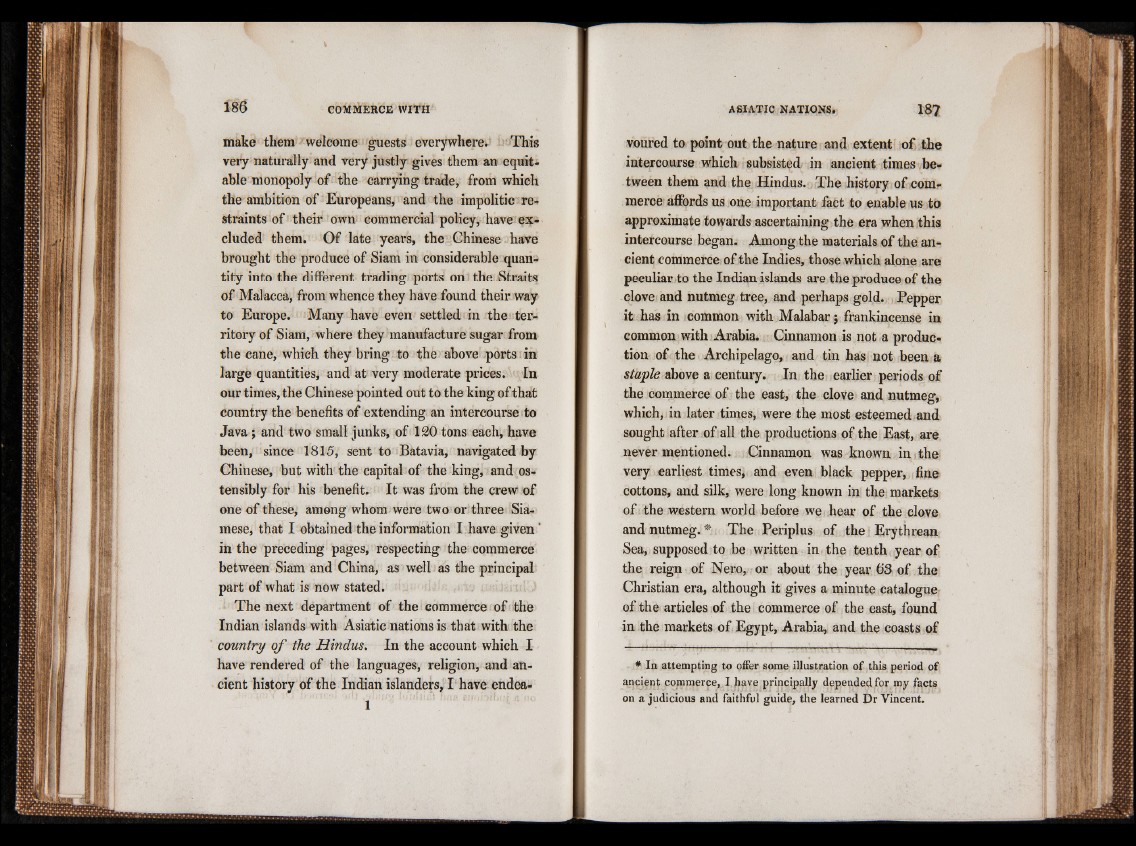
make them welcome guests everywhere. This
very naturally and very justly gives them an equitable
monopoly of the carrying trade, from which
the ambition of Europeans, and the impolitic re-*
straints of their own commercial policy, have excluded
them. Of late years, the Chinese have
brought the produce of Siam in considerable quantity
into the different trading ports on the Straits
of Malacca, from whence they have found their way
to Europe. Many have even settled in the territory
of Siam, where they manufacture sugar from
the cane, which they bring to the above ports in
large quantities, and at very moderate prices. In
our times, the Chinese pointed out to the king of that
country the benefits of extending an intercourse to
Java j and two small junks, of 120 tons each, have
been, since 1815, sent to Batavia, navigated by
Chinese, but with the capital of the king, and ostensibly
for his benefit. It was from the crew of
one of these, among whom were two or three Siamese,
that I obtained the information I have given'
in the preceding pages, respecting the commerce
between Siam and China, as well as the principal
part of what is now stated.
The next department of the commerce of the
Indian islands with Asiatic nations is that with the
country of the Hindus. In the account which I
have rendered of the languages, religion, and ancient
history of the Indian islanders, I have endea-
1
voured to point out the nature and extent of the
intercourse which subsisted in ancient times between
them and the Hindus.- The history of commerce
affords us one important fact to enable us to
approximate towards ascertaining the era when this
intercourse began. Among the materials of the ancient
commerce of the Indies, those which alone are
peculiar to the Indian islands are the produce of the
clove and nutmeg tree, and perhaps gold.. Pepper
it has in common with Malabar ; frankincense in
common with Arabia. Cinnamon is not a production
of the Archipelago, and tin has not been a
staple above a century. In the earlier periods of
the commerce of the east, the clove and nutmeg,
which, in later times, were the most esteemed and
sought after of all the productions of the East, are
never mentioned. Cinnamon was known in the
very earliest times, and even black pepper, fine
cottons, and silk, were long known in the markets
of the western world before we hear of the clove
and nutmeg. * The Periplus of the Erythrean
Sea, supposed to be written in the tenth year of
the reign of Nero, or about the year 68 of the
Christian era, although it gives a minute catalogue
of the articles of the commerce of the east, found
in the markets of Egypt, Arabia, and the coasts of
# In attempting to offer some illustration of this period of
ancient commerce, I have principally depended for my facts
on a judicious and faithful guide, the learned Dr Vincent.